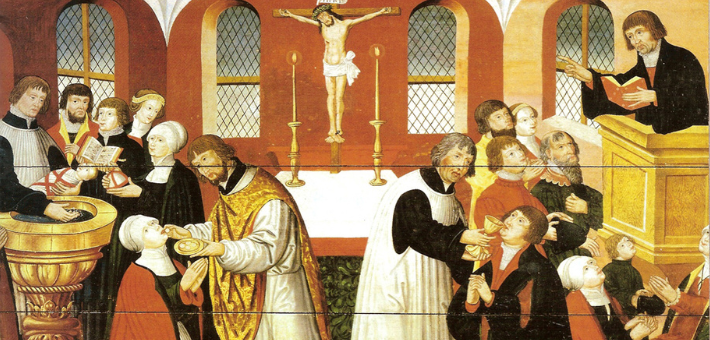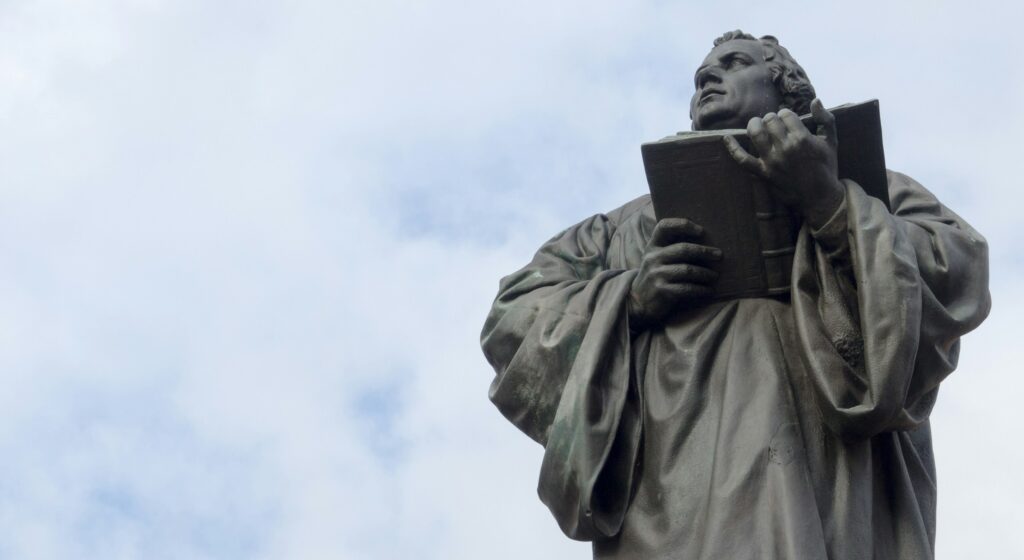Commentary on Jeremiah 31:31-34
This familiar and beautiful passage is assigned every year on Reformation Sunday. Its themes of newness in covenant and community fit well with a day set aside to reflect on the ways God is always making new the body of Christ.
This still-in-the-future new covenant in Jeremiah’s prophecy will be predicated upon the Lord writing upon the hearts of the people and on the Lord’s forgiveness of past sin. It is important here not to slip into language that associates the old covenant with the Old Testament and the promise of forgiveness with the New Testament. Confessions of God’s mercifulness and announcements of divine forgiveness are found throughout the Hebrew Bible as the relationship between God and the people moves through disobedience and repentance, judgment and salvation, at multiple points. In Christian faith, Jesus is always the fullest expression of these things, but Jeremiah and the oracle are knowable to the people to whom Jeremiah is speaking in their own time and place.
The days are surely coming
The oracle opens with the phrase “The days are surely coming.” The Hebrew phrase occurs 14 times in the book of Jeremiah, though it is translated in various ways depending on the context. Sometimes the phrase signals coming judgment, like the distress or devastation associated with the Babylonian conquest and exile or with judgment on Judah’s enemies. Other times, as here, the phrase signals the salvation and new creation the Lord would bring following both conquest and exile. In each case, the phrase refers to a change within a historical timeline rather than to an eschatological promise.
Proclamation, though, is more than a history lesson. The context is important insofar as it witnesses to the mighty acts of God for our ancestors in the faith and calls us forward to identify God’s work in our own midst. A sermon on this text might, particularly on Reformation Sunday, wonder with the congregation about the mighty acts God is doing in the midst of their lives. Jeremiah’s salvific prophecies about a new future come in the midst of a book overwhelmingly filled with oracles of judgment, the fall of a holy city, and the movement of people into exile. Into this reality, God’s gift of newness comes. How is that experienced in our own time and place?
A new covenant
Jeremiah’s emphasis in this passage is on a new covenant. “Covenant” is not a synonym for “law,” though the two are clearly connected. When Jeremiah refers to the covenant, he means the Sinai covenant, the formalized agreement—or treaty or contract—that the Lord made with the Hebrew people after bringing them up out of Egypt. The law codes found in Exodus, Leviticus, and Deuteronomy form stipulations of this covenant, but the covenant itself is a sign of the fullness of relationship between the Lord and the people.
Verse 32 is a retrospective in which the Lord recounts the old covenant. Here, the old covenant is described with the metaphor of marriage, as the Lord laments that Israel and Judah broke the old covenant, although the Lord was their husband (Hebrew: ba’al). The Hebrew could be translated as either “lord” or “husband.” While an argument can be made for a lord leading subjects up out of the land of Egypt, the breaking of a marital covenant fits both the relational and the contractual metaphors operative throughout.
In verse 33, the Lord states that there will be a new covenant and a new law (Hebrew: torah, instruction). Within the law codes of the Hebrew Bible, the law adapts to different times and places. One need only notice differences in the Decalogue to see how Exodus and Deuteronomy spin it differently. Yet, Jeremiah spends no time discussing changes to the law itself. One can surmise that basic themes of things like true worship, justice, and care for the vulnerable—the acts of loving God and neighbor that emanate from knowing the Lord—will continue. What will be new is the way the people will come to know the law and to know the Lord.
New community
Central to this new covenant is the way it will reform the relationship between God and Israel. This new covenant, Jeremiah prophesies, will be within them, written on their heart. The English phrase “know by heart” fits here, as it typically means something more than rote memorization but, rather, an internalization that includes intellectual and often emotional aspects. God’s instruction will be known in the people’s hearts, precisely because they will know the Lord.
The New Revised Standard Version Updated Edition translates “hearts” in the plural, surmising a heart for each person teaching and learning from one another in verse 34. This is undoubtedly correct, given the context. However, the Hebrew may be read in the singular, that the Lord will write the law on the metaphorical heart of the people. It is not only individuals who will be made new, but the community as a whole.
The relationship between God and Israel predated the covenant in the book of Exodus. God brought the people up out of Egypt before the making of the Sinai covenant—not to mention the generations alongside Abraham, Isaac, Jacob, and their families. Yet, the giving of the covenant in Exodus, as with the renewal of the covenant in Deuteronomy, does formalize that relationship in a particular way. In a way, it gives shape to an ongoing relationship that now includes a new covenant for a new community.



October 26, 2025